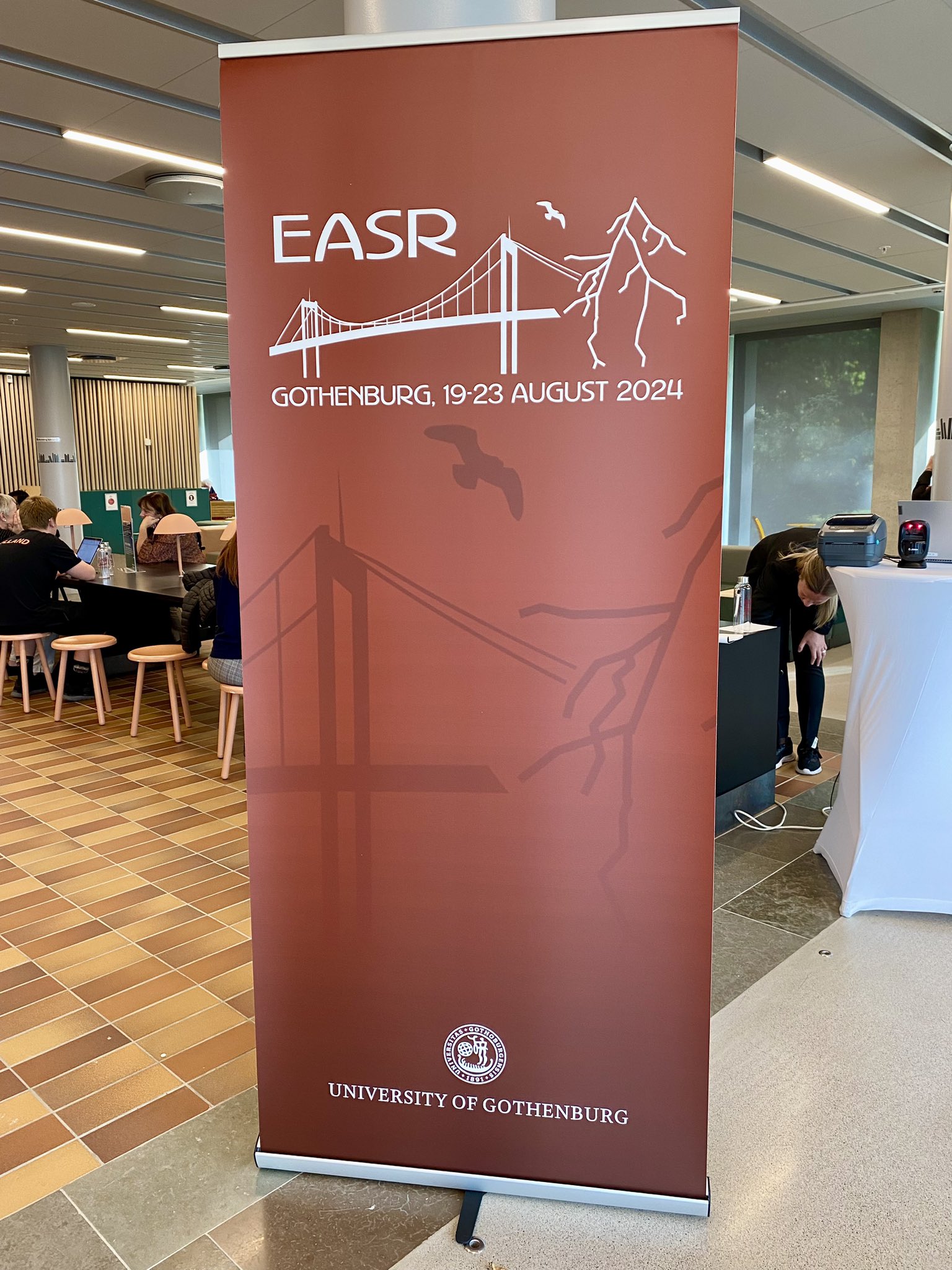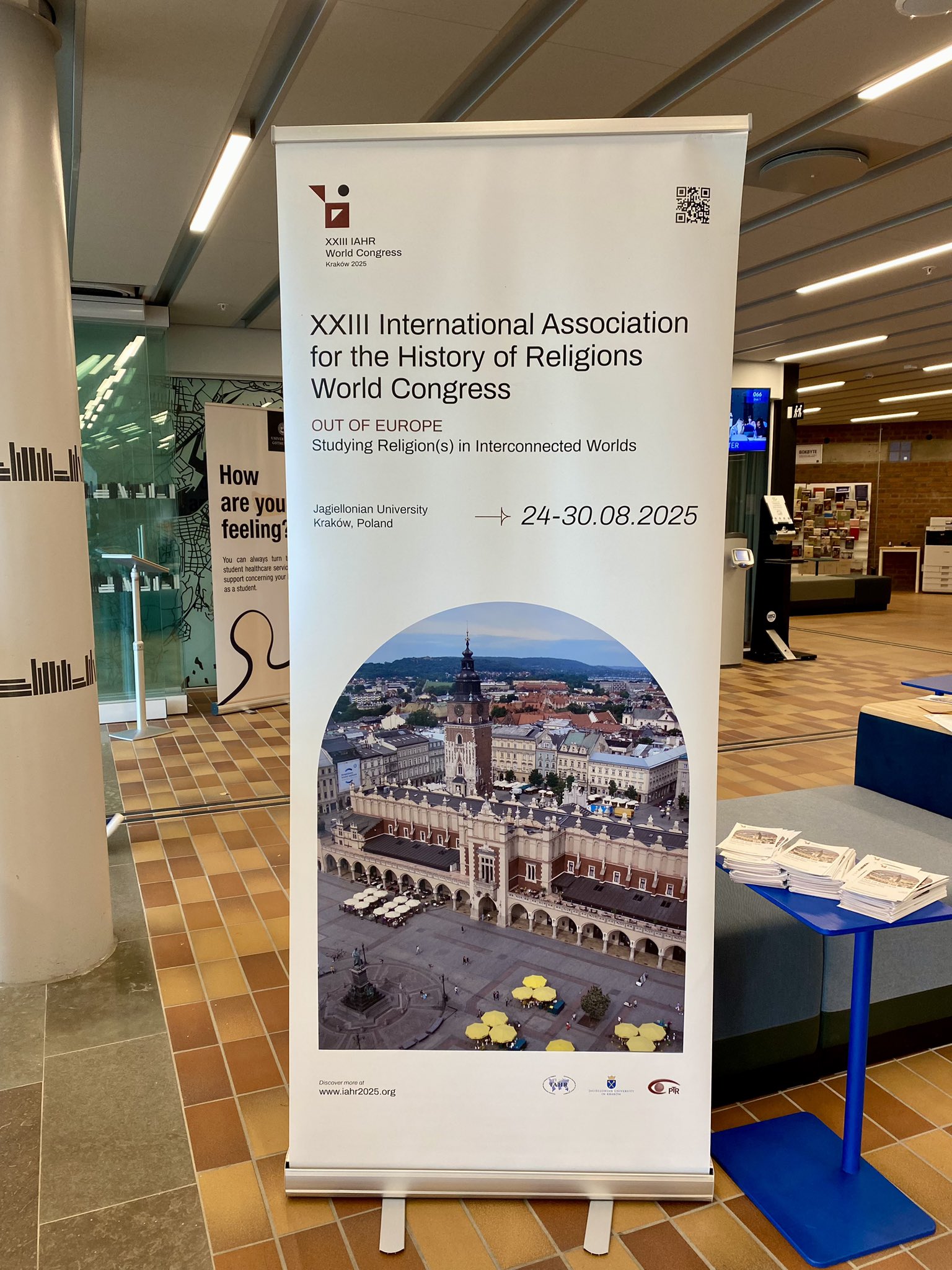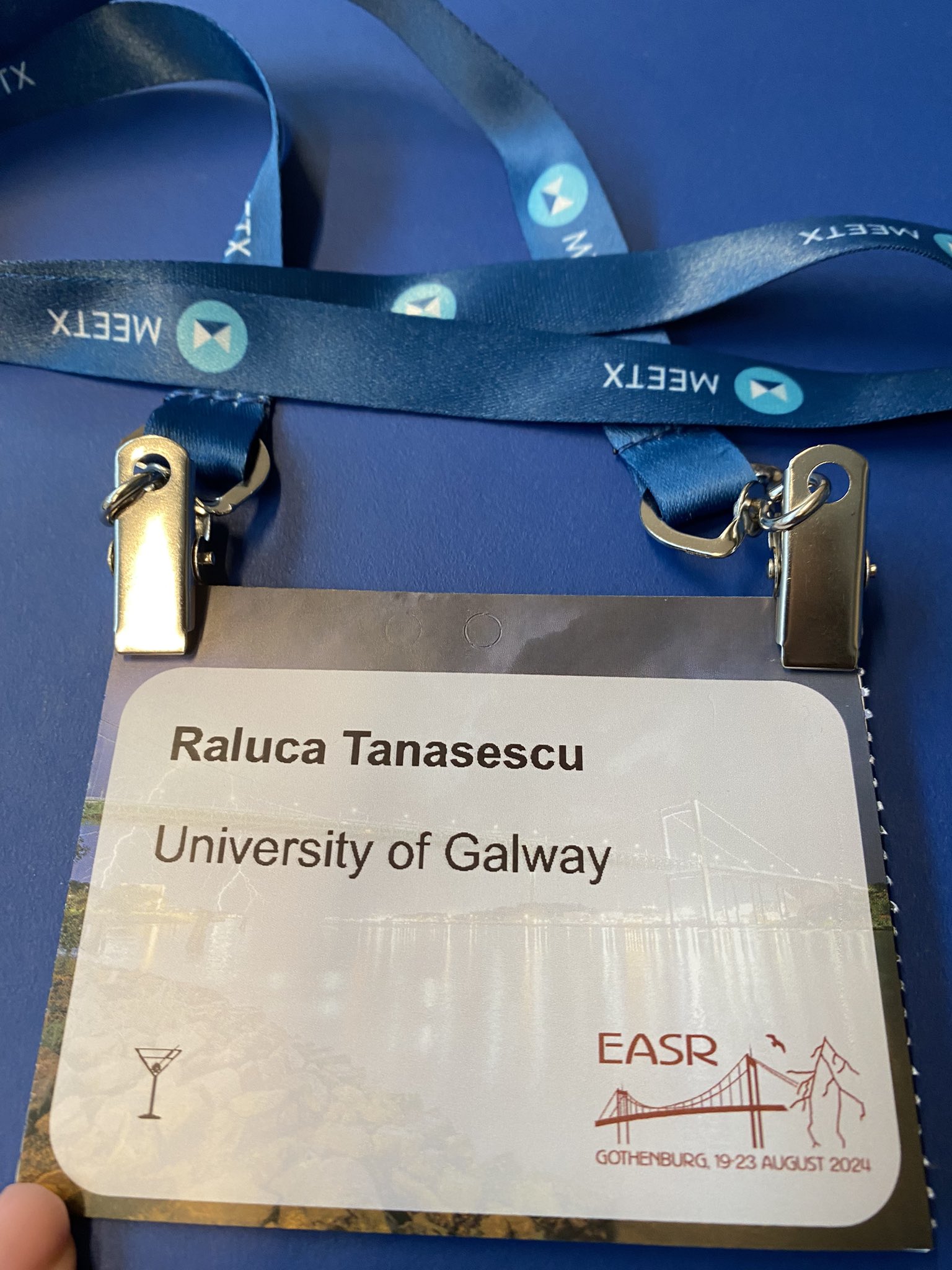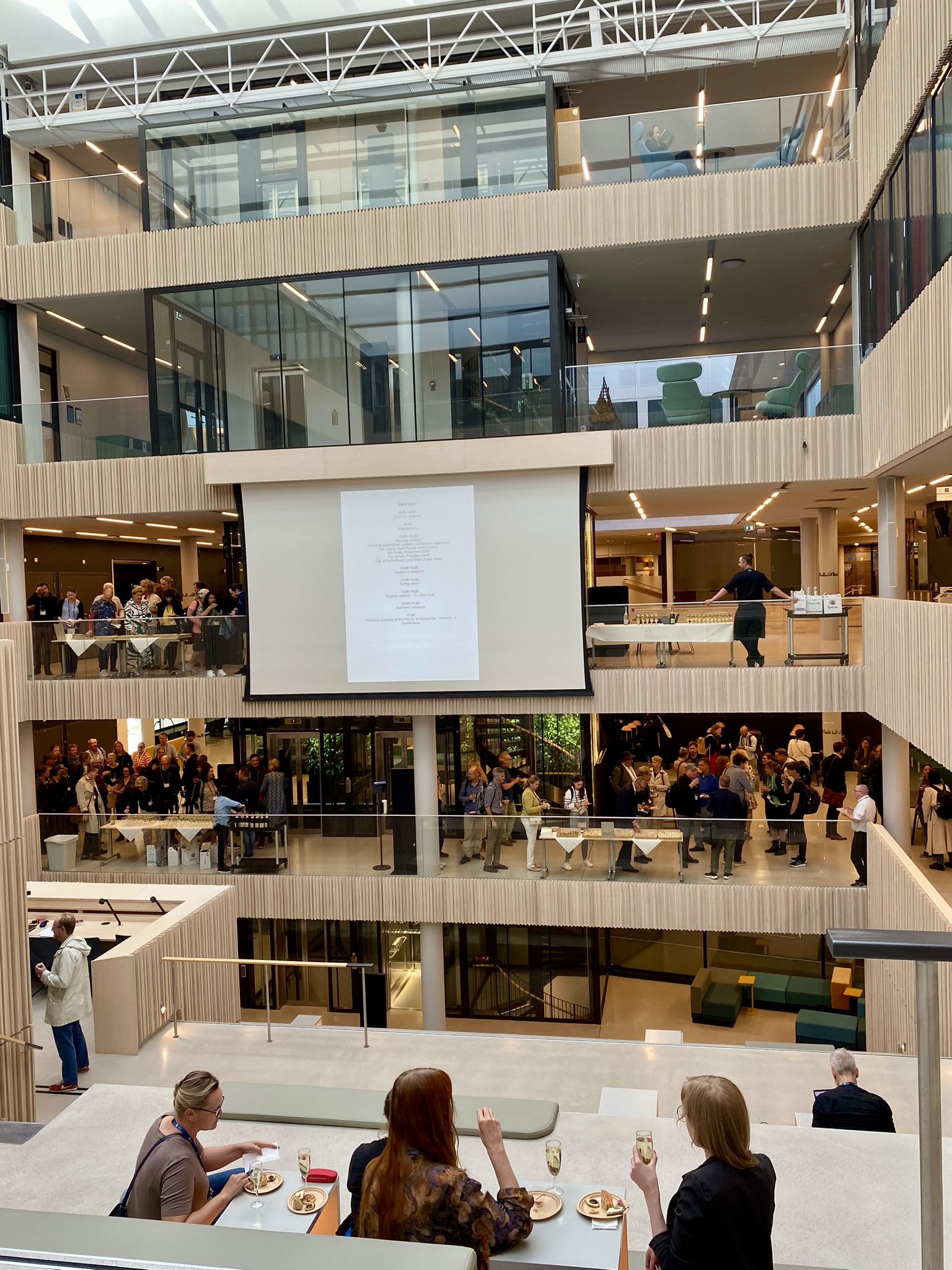
We are proud to share that Raluca recently participated in the 21st Annual Conference of the European Association for the Study of Religions, held at the University of Gothenburg, Sweden, from August 19-23, 2024. This year’s conference theme, “Nature, Ecology, and Religious Responses to Climate Change”, resonated deeply with our ongoing research on the Catholic Church’s discourse on climate change.
Raluca presented a paper co-authored with Anna Furtado and Anne O’Connor, which explored the discursive and textual mechanisms that underpin the persuasive power of Pope Francis’s 2015 encyclical letter Laudato Si’. The conference provided an invaluable platform for engaging with scholars from diverse backgrounds worldwide, offering fresh perspectives on the relevance and impact of these persuasive strategies. The abstract of the paper presented can be read below.


Wordcraft for the Earth:
Persuasive Techniques to Protest Climate Change in Laudato Si
Raluca Tanasescu, Anna Beatriz Dimas Furtado and Anne O’Connor
University of Galway
In 2015, Pope Francis’ encyclical letter, Laudato Si’, marked a decisive intervention by the Catholic Church in the ongoing environmental debate. Addressing climate science, consumerism, and integral ecology, the encyclical was lauded by many but also faced criticism for its reach beyond traditional religious concerns (Hofmann, 2015; Pasquale, 2019; DiLeo, 2020; Tatay-Nieto, 2020). Given the global scope of both climate change discourse and Catholicism, translating the Pope’s message about “our common home” into “one common language” entailed a vast and concerted multilingual and multimodal effort.
This paper explores the varied persuasiveness mechanisms present in the Italian original and in four of the translations of Laudato Si’ (in English, French, Spanish and Portuguese) as well as across its iteration into the film “Laudato Si’ – The Letter.” By using a critical multimodal discourse analysis approach (Bednarek, 2015) and leveraging corpus linguistics tools like Sketch Engine, text mining techniques and visual content analysis, the presentation will analyze the most consistent ways in which Pope Francis encourages change at textual level and enforces it visually. Our research has shown that among his preferred mechanisms are the use of modal verbs to encourage certain attitudes and propose concrete solutions to fight climate change; evidence-based science; labelling and shaming in relation to throwaway culture, consumerism and populist politics; narrative, storytelling and imagery; and the recurrent appeal to religious morality as a catalyst for our motivation to act sustainably. Pope Francis employs nuanced and gentle yet impactful verbs that convey not only a sense of pastoral care but also underscore his deeply personal engagement with the pressing issue of climate change. Through these carefully chosen words, the Pope spreads a message of environmental responsibility while delicately intertwining his personal commitment to addressing the pressing challenges at hand.
Our findings contribute to understanding the challenges and possibilities of communicating complex concepts like climate change across languages and cultures, particularly within religious contexts. Ultimately, we consider the implications of Pope Francis’ discourse for building a “common home” through the lens of a “common language,” acknowledging the complexities of religious communication in a culturally diverse world.
References:
Bednarek, M. (2015). “Corpus-Assisted Multimodal Discourse Analysis of Television and Film Narratives.” In Corpora and Discourse Studies: Integrating Discourse and Corpora, pp. 63-87. London: Palgrave Macmillan.
DiLeo, D. R. (2020) “Laudato si’ and Climate Change Communications. Public Theology Informed by the Social Sciences.” Journal of Catholic Social Thought, 17 (2): 261-292.
Francis, P. (2015). Laudato Si’. Vatican City: Vatican Press, May 24, w2.
Hoffman, A. J. (2015) “Laudato Si and the Role of Religion in Shaping Humanity’s Response to Climate Change.” Solutions, 6(5): 40-47.
Pasquale, F. (Ed.). (2019). Care for the world: Laudato si’ and Catholic Social Thought in an Era of Climate Crisis. Cambridge University Press.
Tatay-Nieto, J. (2020). “Sustainability, the Pontifical Academy of Sciences, and the Catholic Church’s Ecological Turn.” Religions, 11 (10), 488.


Website: https://easr2024.se/